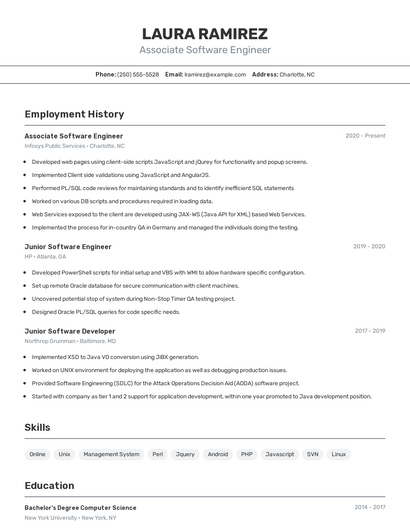
The salaries of consultants vary from one place to another. Certain firms have a reputation of paying top dollar to experienced employees. You can negotiate the amount of your offer. However, it's not realistic to expect a substantial raise. However, you need to be aware of some things when negotiating for the best deal.
Base salary
Consulting is a great career choice if your goal is to make a living as a consultant. The average annual salary for consultants is US$51769 to US$149770. EY Senior Consultants earn approximately US$172.465 in New York. EY offers senior consultants multiple training opportunities and many tools and techniques to aid in their work.

The top firms have a rapid increase in consulting salaries, but it's important to remember that this increase often comes with a lifestyle change. Top-ranking consultants tend to have a 12-20% higher pay than the average worker and enjoy a better life balance. While this can be very rewarding, it also means that there are sacrifices for consultants working in the financial sector.
Performance bonus
A performance bonus is a major part of a consulting salary. It is a significant amount that can vary depending on the firm and the industry. Some bonuses can be more predictable than others. A top-tier salary bonus is roughly 60%. Below this level you can expect to make less that six thousand dollars annually.
If you're a recent MBA graduate, you might be tempted to start at a top consulting firm. These firms often offer very attractive salaries. Firms can offer up to $90,000. This is for a $190,000. Additional bonuses include performance bonuses, which can vary from 5 to 15% of your base income.
Profit sharing
Over the past decade, the consulting industry has seen steady increases in its compensation year-over-year. Many firms have increased their total compensation and provided perks like profit sharing. Many firms have increased base salaries and increased signing bonuses. Many of these firms also offer profit sharing and unlimited PTO.

Employer level
Different types of jobs and different levels of experience will affect the range of salaries offered by various consulting firms. Consulting firms such as Deloitte have a set compensation structure, but it is often possible to negotiate for a higher salary. Ask your recruiter about salary information if you have relevant experience. Based on the role you are playing, you might be able to negotiate a better base salary or sign-on bonuses.
FAQ
How do I get clients for my consultancy business?
The first step is to find an area you are passionate about. This could be social media or public relations. However, it must be something that you are passionate about. If you don't feel passionate about it, you might need to start small with web design. Once you find the right niche, it is important to know what makes it tick. What problems does it solve Why should people use it? And most importantly, how can you help them?
You could also approach businesses directly. Perhaps they are looking for someone who can help them understand SEO and content creation or just need advice on social media strategy.
If all else fails, why not offer your services at free events like networking evenings and conferences? You'll meet many potential customers without spending money on advertising, and you'll be able to show off your skills.
What qualifications are necessary to become a consultant
It's not enough just to have an MBA degree; you must also demonstrate experience working as a business consultant. You must have at least two years' experience working in consulting and/or training within a large company.
You must have worked closely with senior management teams on strategy development projects. You will need to feel comfortable communicating ideas to clients and getting their support.
A professional qualification exam, such as the Certified Management Consultant (CMC), of the Chartered Management Institute (CMI), is also required.
Can you run a business consulting from your home?
Absolutely! This is something that many consultants do already.
The majority of freelancers work remotely with tools like Skype. Many freelancers set up their own office space to avoid missing out on company perks.
Freelancers might prefer to work in libraries or cafés, rather than traditional offices.
Some people choose to work from their home because they like being close to their children.
There are pros and cons to working remotely. If you love your job, working from home is definitely something worth looking at.
How is consulting different to freelancing
Freelancers, who are self-employed and provide services to clients without the need for employees, are independent contractors. They usually charge an hourly rate based on how much time they spent on a project. Consultants often work for companies or agencies that employ them. Their salaries are paid usually monthly or annually.
Because they have control over their work hours and can set their prices, freelancers are more flexible than consultants. But consultants have more benefits like vacation days, health insurance and retirement plans.
What can I anticipate from my consultant
After you have selected your consultant, expect to hear from them within a few business days. They will typically ask for information about the company, such as its mission, goals. products and services. budget. Then, they'll send over a proposal outlining the scope of work, estimated time frame, fees, deliverables, milestones, etc.
If all goes well, the parties will then negotiate a written agreement. The type relationship between the two sides (e.g. employee-employer or independent contractor-employer) will dictate the terms of the contract.
If everything goes as planned, the consultant may begin to work immediately. S/he will have access to your internal documents and resources, and you'll have access to his/her skills and knowledge.
Don't assume that someone who is a consultant knows everything. It takes time and practice to become an expert on any subject you consult. So, don't expect your consultant to know everything about your business.
How much are consultants paid?
Some consultants earn more than $100k per year, but most consultants earn between $25 and $50k. A consultant's average salary is $39,000 This applies to both hourly and salaried consultants.
Salary depends on the experience of the consultant, their location, industry, type and length of the contract (contractor or employee), as well as whether they have their own office or work remotely.
Statistics
- So, if you help your clients increase their sales by 33%, then use a word like “revolution” instead of “increase.” (consultingsuccess.com)
- "From there, I told them my rates were going up 25%, this is the new hourly rate, and every single one of them said 'done, fine.' (nerdwallet.com)
- WHY choose me: Why your ideal client should choose you (ex: 10 years of experience and 6-week program has helped over 20 clients boost their sales by an average of 33% in 6 months). (consultingsuccess.com)
- Over 50% of consultants get their first consulting client through a referral from their network. (consultingsuccess.com)
- According to IBISWorld, revenues in the consulting industry will exceed $261 billion in 2020. (nerdwallet.com)
External Links
How To
How to Start a Consultancy Company and What Should I Do First
Starting a Consulting Company is a great way to make money online from home. You don't need any previous business experience or investment capital. To start your own consulting business, you can build a site. Once you've built a website, you'll want to use social media platforms such as Facebook, Twitter, LinkedIn, Instagram, Pinterest, YouTube, etc... to get the word out about your services.
These tools allow you to make a marketing program that includes the following:
-
Create content (blogs).
-
Establishing connections (contacts)
-
Generating leads, also known as lead generation forms
-
Selling products via ecommerce websites
Once you have created your marketing strategy you will need to find clients that will pay for it. Some prefer to meet up at networking events or go to meetings, while others prefer to use online platforms like Craigslist, Kijiji, and others. Your choice is yours.
Once you have secured new clients, you will need to discuss terms with them and their payment options. These could be hourly fees, retainer arrangements, flat-fee contracts, or other types of fees. It's important to know what you expect before accepting a client so you can communicate clearly throughout the process.
The most common type of contract for a consultancy service is an hourly agreement. This agreement allows you to agree to provide services at a fixed price each week or month. You may be eligible to negotiate a discount, depending on the service that you offer. It is important to understand the terms of any contract you sign before you sign it.
Next, you will need to create invoices that you can send to your clients. Invoicing is one those things that seem so simple until you actually do it. You have many options to invoice your clients. For example, some people prefer to have their invoices emailed directly to their clients, while others print hard copies and mail them. Whatever method you choose, make sure it works for you!
Once you have created invoices, it is time to collect the payments. PayPal is the most popular payment option because it's easy to use and provides multiple payment options. There are many other payment options, such as Square Cash, Square Cash and Google Wallet.
Once you're ready for collecting payments you'll need to set up bank account. Separate checking and savings accounts allow you to keep track of income and expenses separately. You can also set up automatic bank transfers to pay bills.
When you start a consultancy business, it may seem overwhelming, but once you learn how to do it correctly, it becomes second nature. For more information on starting a consultancy business, check out our blog post here.
You can make extra money by starting a consulting company without worrying about staff. Many consultants work remotely, which means they don't have to deal with office politics or long hours in the office. You have more flexibility than traditional employees because you aren't tied down by work hours.